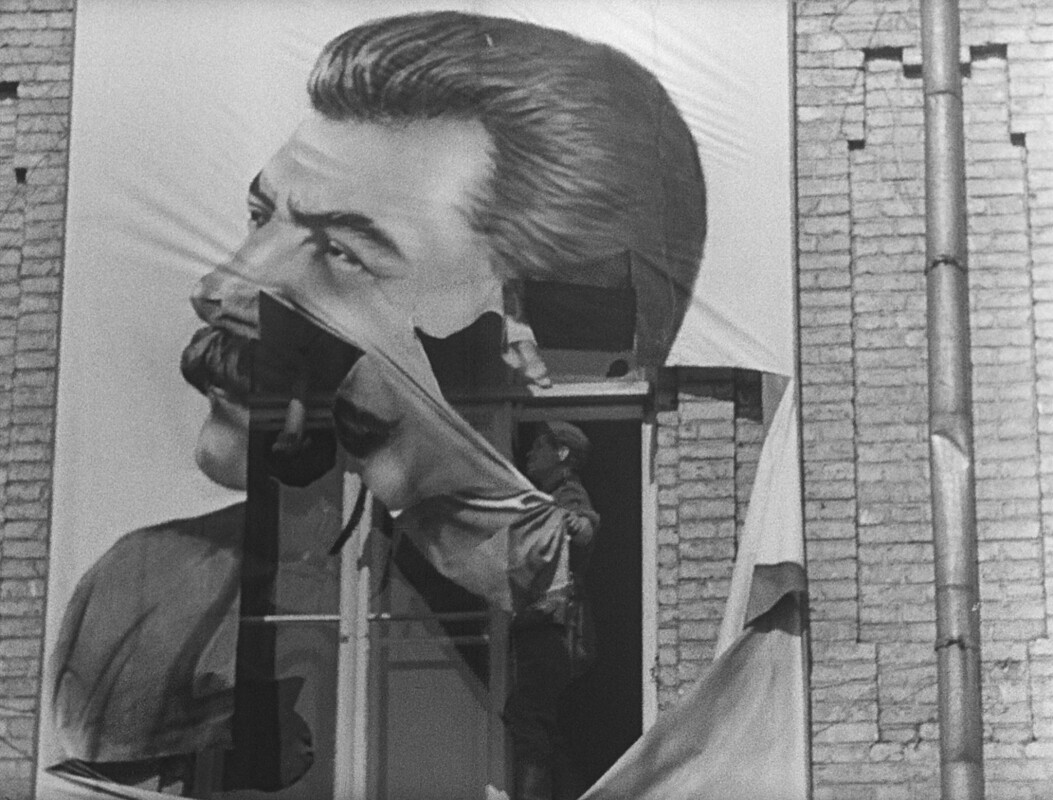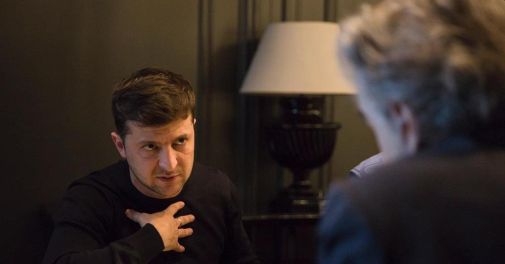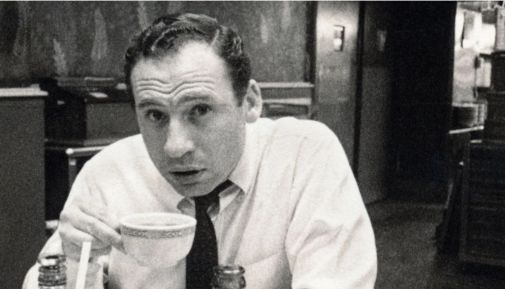Doc Corner Catch-Up: White Hot, The Automat, and ¡Viva Maestro!
 Sunday, May 1, 2022 at 9:06AM
Sunday, May 1, 2022 at 9:06AM By Glenn Dunks
 White Hot: The Rise and Fall of Abercrombie & FitchYou may have noticed that the Doc Corner column has been a bit quiet. I have been unfortunately quite slack with the reviews in the first four months of 2022. It is usually a quiet period at the beginning of the year in general, but fatigue (awards season + life) means I have unfortunately missed the chance to talk about some of the titles that have come along. And then added onto that, I had COVID and despite being in mandated isolation for the week, my brain was living strictly on a diet of Harrison Ford movies and television catch-up (Shining Vale, Abbott Elementary, Troppo among them).
White Hot: The Rise and Fall of Abercrombie & FitchYou may have noticed that the Doc Corner column has been a bit quiet. I have been unfortunately quite slack with the reviews in the first four months of 2022. It is usually a quiet period at the beginning of the year in general, but fatigue (awards season + life) means I have unfortunately missed the chance to talk about some of the titles that have come along. And then added onto that, I had COVID and despite being in mandated isolation for the week, my brain was living strictly on a diet of Harrison Ford movies and television catch-up (Shining Vale, Abbott Elementary, Troppo among them).
But we are here on the first of May. And so before we get back into regular coverage of some pretty big titles (some of which will be angling for Oscar's attention), we’re going to play a little bit of catch-up today. We have war-torn Ukraine, the history of American dining and fashion institutions, and globe-trotting philosophers...
BABI YAR. CONTEXT
Given the current state of the world, it’s somewhat predictable that the works of Ukraine’s most prominent filmmaker, Seigei Loznitsa, have finally begun to achieve some attention beyond festivals. The director, whose work covers both documentary and fiction, has been making films consistently since the late 1990s, but it has been a recent run of found footage documentaries that I feel have made him one of the more formidable filmmakers of the current age.

Babi Yar. Context is one of the three of his films to get a release in the recent months. It may very well be the strongest, too. Like his earlier works The Event, The Trial, State Funeral and A Night at the Opera, Loznitsa has dug through the Soviet archives to tell a moment in history through images. This time it is the WWII massacre of 33,771 jews over three days, the bodies of whom were found in a ravine outside Kyiv. Loznitsa and his fellow editors Danielius Kokanauskis and Tomasz Wolski blend video taken by occupying forces as well as photography (a first for one of Loznitza’s docs) and poetry (Vasily Grossman’s Ukraine Without Jews) to give an all-consuming yet artfully composed glimpse into this horrific period of Ukraine’s history.
The current context of the war in Ukraine only seeks to emphasise its message, particularly as we see some initially celebrate the freedom from Soviet rule that the Nazis brought. Such is the complexity that Loznitsa brings. It isn’t just a matter of one evil, but rather the seemingly endless cycle as a pawn of continued evil that plagues the nation.
Babi Yar. Context is currently in limited theatrical release.

THE WILL TO SEE
And speaking of Ukraine. If the daily news cycle wasn’t enough to show you how bad the world is right now, here is a documentary to tell you that, no, it’s actually worse! Author Bernard-Henri Lévy returns to directing (this time alongside Marc Roussel) in this globe-trotting documentary about what he calls the forgotten wars; those that rage in the back-pages of the newspaper if at all and which Lévy is dedicated to positioning himself on the front lines of.
He cuts a very particularly odd sight as he traversed warzones in a black suit, crisp white shirt and (it must be said) fabulous coat. He even visits Ukraine trenches along a 450km trek near Donbass and interviews President Zelensky before the current escalation of violence. But Lévy’s philosophical waffling is often enough to get on the nerves and some of his biases show—perhaps more prominently than he thinks.
The Will to See is currently in limited theatrical release.

THE AUTOMAT
Okay, something much more pleasant if also rather limited. The Automat is Lisa Hurwitz’s charming tribute to the humble American dining institution of the title. Positively drowning in nostalgia for a post-war boomer era of the dime-based eatery automats that were popularised across America’s large cities, The Automat is a fairly surface-level dine-in experience that feels more and more like one of those chunky picture books that one buys for their grandparents at Christmas. Just, you know, in movie form.
There is nothing necessarily wrong with that, of course. Hurwitz is keen to linger quite comfortably in the glow of nostalgia, refusing any desire to contextualize the automat beyond the basics for a contemporary audience for whom a $5 coffee is on the low-end of menu expectations. Why would she when here she has Mel Brooks and Carl Reiner on hand to tell their anecdotes of the time. Ruth Bader Ginsburg, too. But particularly as society attempts to emerge out of a pandemic that has torn many from the social nature of our existence, it might have been nice to dig a little deeper and find why it worked, why it couldn’t today and what that says about America. But, you know, The Automat is lovely as it is. Harmless, really.
The Automat will be on VOD and streaming later after a brief theatrical run.

¡VIVA MAESTRO!
Docs about conductors are a popular mini-world within non-fiction. Here, Gustavo Dudamel (the apparent inspiration for Mozart in the Jungle!) gets the loving tribute as he sets out to bring his Venezuelan heritage and uniquely personal conducting style of the Simón Bolívar Symphony Orchestra to audiences around the world. Directed by Ted Braun (Darfur Now), this is a more-or-less charming film that attempts to detail the work of a conductor while highlighting his efforts to bring classical music to new generations. It is (quite appropriately) enraptured in its subject’s vibrant take on stuffy music.
Less successful is when politics gets in the way. The democratic crisis in Venezuela in particular, to which Dudamel was heavily criticised for his response to, plays out across the events of the entire film and yet the viewer never really gets a sense of where the maestro sits in this politically unstable world of art. Or where art sits full stop. It’s an appealing film, but not one that goes beyond what most viewers will be expecting.
¡Viva Maestro! Is in 40+ cinemas across the country.

WHITE HOT: THE RISE AND FALL OF ABERCROMBIE & FITCH
A fairly standard rise and fall doc (it literally is right there in the title) that attempts to have its cake and eat it, too. It’s more successful at the former, if you know what I mean. Cake. Buns. Butts. Whatever you wanna call it, Alison Klayman’s film has plenty of it as she navigates the murky business world within which this iconic brand emerged and temporarily prospered. The story of how Abercrombie & Fitch came to be isn’t all that exciting, although the movie tries to turn its rather basic early marketing nous into something sinister.
It gets markedly more interesting once it begins to tackle the issues of race, homophobia and other modern concerns. As its CEO, Mike Jeffies, begins to look more and more like Walter Mercado while his business loses more and more money, the reckoning around its ‘model’ casting and the way it manages its non-white employees was deserved. As a documentary, there’s little here that is revelatory. But what makes the story so interesting is how contemporary it is. This is a recent phenomenon, and Klayman directs the film with an energy that is accurate for its subject matter. I might have liked a better interrogation of its recent image change full of pride symbols and ideas of individualism, but I suppose that isn’t the story it wanted to tell.
White Hot: The Rise and Fall of Abercrombie & Fitch is streaming on Netflix.
 Carl Reiner,
Carl Reiner,  Doc Corner,
Doc Corner,  Mel Brooks,
Mel Brooks,  Mozart,
Mozart,  Review,
Review,  Sergei Loznitsa,
Sergei Loznitsa,  documentaries
documentaries 


Reader Comments (2)
Thanks as always for the great roundup, Glenn. I quibble only with your characterization of standard classical music repertoire as "stuffy" - it can be just as exciting and dynamic as it was 200 years ago, and not just in Dudamel's hands!
These all look interesting, subject matter wise, even if they don't all fully deliver on their potential. I have a weird fascination with the Automat so I just might check that one out despite its limitations.
He does look like Walter Mercado! LOL